
Discover the Hidden Gem of Selebi-Phikwe
Nestled in the eastern part of Botswana, Selebi-Phikwe is a town with a rich history and vibrant culture. Known for its copper and nickel mines, this city offers a unique blend of industrial heritage and natural beauty. Tourists can explore the remnants of the mining operations that once drove the town's economy and learn about the local mining history at the Selebi-Phikwe Museum. Nature enthusiasts will find Selebi-Phikwe a delightful escape. The town is surrounded by stunning landscapes, including the nearby Tswapong Hills and the serene Letsibogo Dam. The dam is a popular spot for fishing, bird watching, and picnicking, providing a perfect retreat for those looking to unwind in nature. The local markets and eateries in Selebi-Phikwe offer a taste of Botswana's culinary delights. From traditional dishes to fresh produce, visitors can indulge in a variety of flavors while mingling with friendly locals. Whether you're an adventure seeker or simply looking to relax, Selebi-Phikwe has something for everyone.
Local tips in Selebi-Phikwe
- Visit the Selebi-Phikwe Museum to understand the town's mining history.
- Take a trip to Letsibogo Dam for fishing, bird watching, or a relaxing picnic.
- Explore the Tswapong Hills for hiking and stunning views.
- Try local dishes at the markets and eateries for an authentic taste of Botswana.
- Interact with locals to learn about their culture and traditions.
Discover the Hidden Gem of Selebi-Phikwe
Nestled in the eastern part of Botswana, Selebi-Phikwe is a town with a rich history and vibrant culture. Known for its copper and nickel mines, this city offers a unique blend of industrial heritage and natural beauty. Tourists can explore the remnants of the mining operations that once drove the town's economy and learn about the local mining history at the Selebi-Phikwe Museum. Nature enthusiasts will find Selebi-Phikwe a delightful escape. The town is surrounded by stunning landscapes, including the nearby Tswapong Hills and the serene Letsibogo Dam. The dam is a popular spot for fishing, bird watching, and picnicking, providing a perfect retreat for those looking to unwind in nature. The local markets and eateries in Selebi-Phikwe offer a taste of Botswana's culinary delights. From traditional dishes to fresh produce, visitors can indulge in a variety of flavors while mingling with friendly locals. Whether you're an adventure seeker or simply looking to relax, Selebi-Phikwe has something for everyone.
When is the best time to go to Selebi-Phikwe?
Iconic landmarks you can’t miss
Cresta Bosele
Your comfortable base in Selebi-Phikwe for business, conferencing, and exploring Botswana's natural beauty.
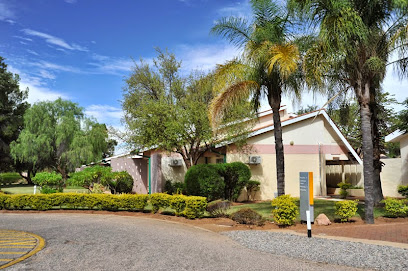
Phokoje Bush Lodge
Experience tranquility in the Botswana bushveld at Phokoje Bush Lodge near Mmadinare, offering comfortable lodging and a relaxing atmosphere.

Mathudi Shades Lodge
Experience comfort and local hospitality at Mathudi Shades Lodge, your gateway to exploring the beauty of Selebi Phikwe, Botswana.

Hotel Stonehouse
Your cozy retreat in Selebi-Phikwe, Botswana. Enjoy comfortable rooms, on-site dining, and a refreshing pool during your stay.

Limpopo-Lipadi Wildlife and Wilderness Reserve
Experience Botswana's untamed beauty at Limpopo-Lipadi: a premier wildlife reserve in the Tuli Block, offering immersive safaris and conservation.
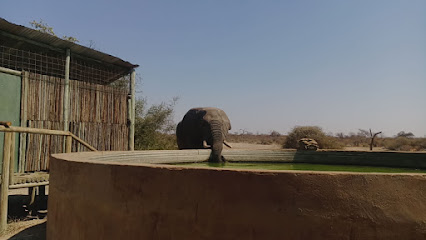
Bobonong Park
Escape to nature's tranquility at Bobonong Park in Botswana, where lush landscapes and peaceful surroundings offer a perfect retreat for relaxation and recreation.

Anne Adams Park
Escape to nature in the heart of Selebi Phikwe at Anne Adams Park, a peaceful retreat with lush greenery and scenic views.
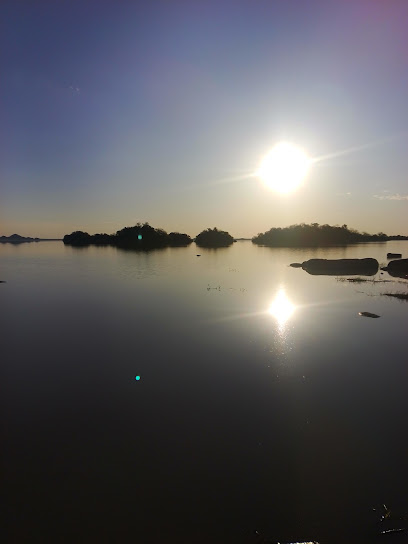
Stevensford Game Reserve
Discover untamed beauty at Stevensford Game Reserve in Botswana's Tuli Block: wildlife encounters, birding, and tranquil escapes on the Limpopo River.
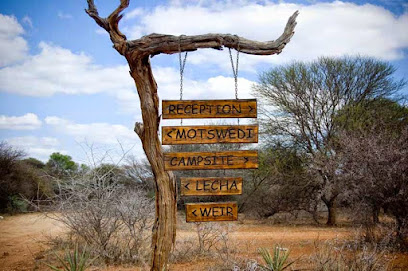
Supa Ngwao Museum
Discover the heritage of Francistown and northeastern Botswana at the Supa Ngwao Museum, showcasing local culture and history.
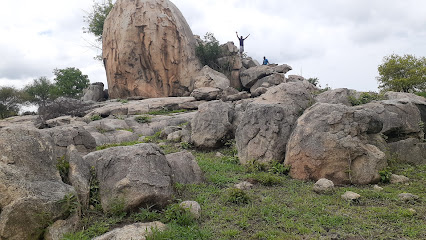
Selebi Phikwe Masjid
Discover the serene Selebi Phikwe Masjid, a cultural landmark reflecting Botswana's Muslim community's spiritual essence.
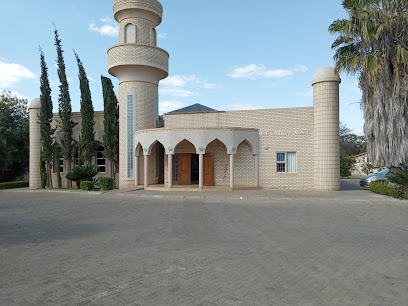
Letsibogo DAM
Escape to Letsibogo Dam for serene waters, abundant birdlife, and outdoor adventures in the heart of Botswana.
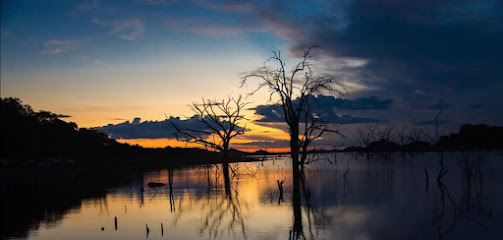
Nickel Park
Discover Nickel Park in Selebi Phikwe: A peaceful retreat with lush greenery, walking trails, and perfect picnic spots for nature lovers.
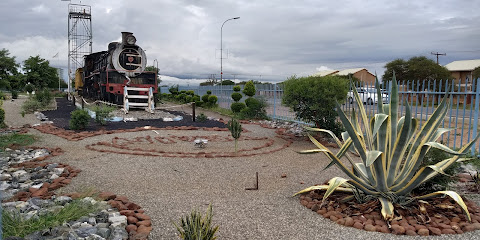
Lepokole Hills Nature Reserve
Discover Botswana's hidden gem: Lepokole Hills Nature Reserve. Hike through ancient landscapes, explore San rock art, and witness diverse wildlife.
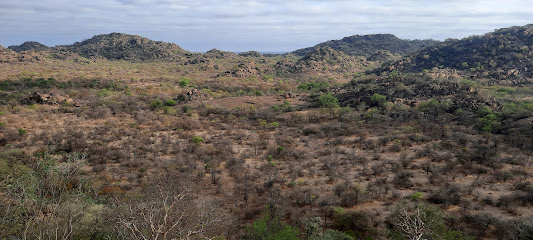
Unmissable attractions to see
Nickel Park
Escape to Nickel Park in Selebi Phikwe: A tranquil haven with green spaces, walking trails, and a glimpse into the town's mining history.
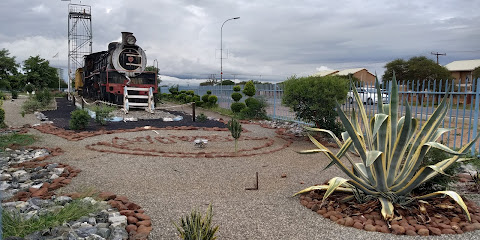
FatherTime Baobab Tree
Discover the majestic FatherTime Baobab Tree in Selebi Phikwe, a symbol of Botswana's enduring natural heritage and cultural significance.
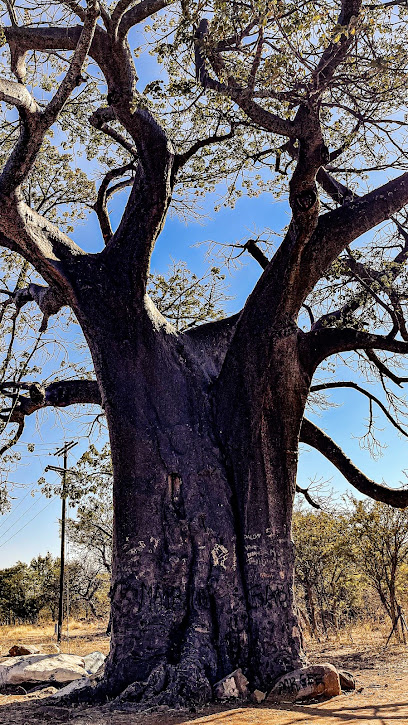
L’Amour Gardens
Discover tranquility at L'Amour Gardens in Selebi Phikwe: a serene escape into nature's beauty, perfect for relaxation and local culture immersion.

Letshibogo Adventure Campsite
Reconnect with nature at Letshibogo Adventure Campsite, your gateway to exploring the stunning landscapes and wildlife of Botswana.
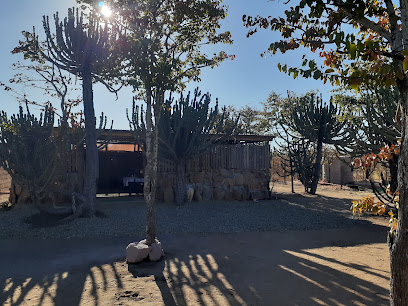
Essential places to dine
Cresta Bosele
Discover comfort and hospitality at Cresta Bosele Hotel in Selebi Phikwe – perfect for exploring Botswana's vibrant culture.
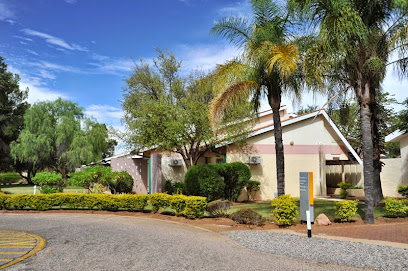
The Mall
Explore diverse shops, dining options, and vibrant culture at The Mall in Selebi Phikwe - your ultimate shopping destination.
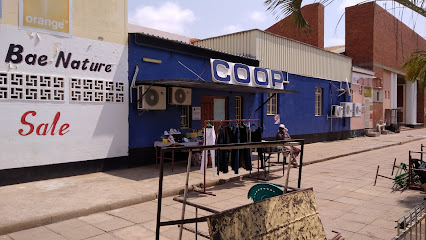
Hotel Selebi
Discover comfort at Hotel Selebi in Newstands – your ideal base for exploring local culture and attractions.
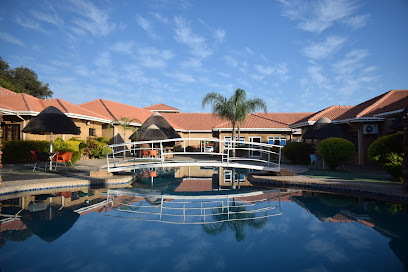
Phokoje Bush Lodge
Discover tranquility at Phokoje Bush Lodge in Mmadinare - your gateway to Botswana's breathtaking landscapes and unforgettable adventures.
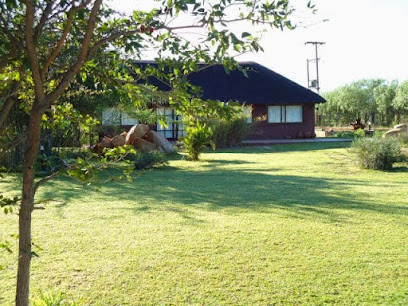
Chicken Licken
Discover delicious fried chicken and more at Chicken Licken in Selebi Phikwe – a culinary gem perfect for families and food enthusiasts.
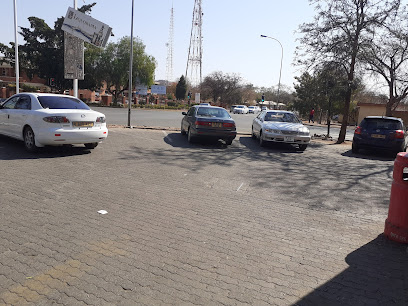
Hotel Stonehouse
Discover the charm and comfort of Hotel Stonehouse in Selebi Phikwe – your perfect base for exploring Botswana's vibrant culture.

Bull and Bush Express
Experience authentic flavors at Bull and Bush Express in Selebi Phikwe – a delightful blend of local cuisine and international dishes awaits!
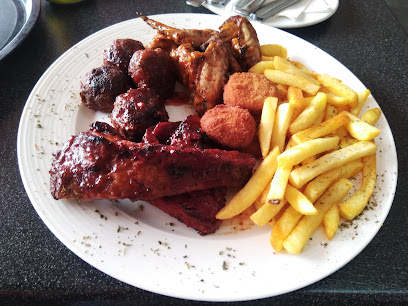
Syringa Lodge
Discover tranquility at Syringa Lodge in Selebi-Phikwe - where comfort meets adventure amidst Botswana's natural beauty.
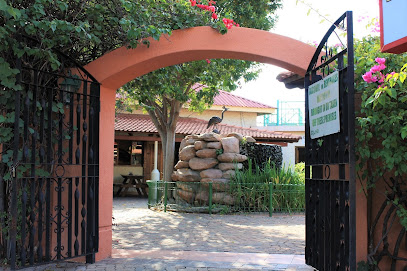
Syringa Spur
Experience authentic African cuisine at Syringa Spur - home to delicious steaks and delightful family-friendly dining in Selebi Phikwe.

Selebi Phikwe
Explore Selebi Phikwe: A vibrant mining town offering rich culture, beautiful landscapes, and authentic local experiences.
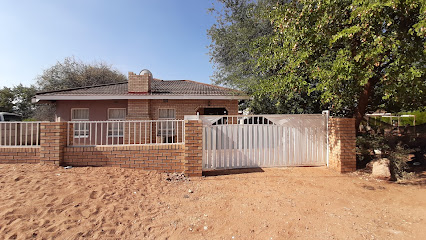
Delicious Delights
Explore the vibrant flavors of Botswana at Delicious Delights - where every meal is a celebration of local ingredients and culinary creativity.
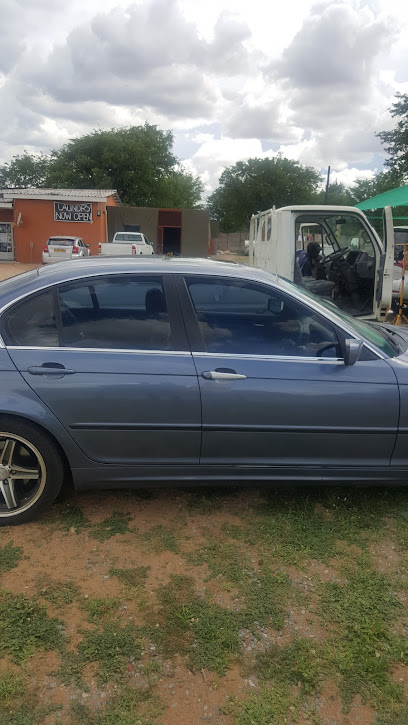
Honeymoon Bar
Discover the lively spirit of Selebi Phikwe at Honeymoon Bar, where refreshing drinks meet vibrant nightlife in a welcoming atmosphere.

Selibe Hotel
Experience modern comfort at Selibe Hotel in Selebi Phikwe - your ideal retreat for relaxation and exploration.

The Braai Smoke
Experience authentic Botswanan cuisine at The Braai Smoke, where every meal is a celebration of local flavors and warm hospitality.
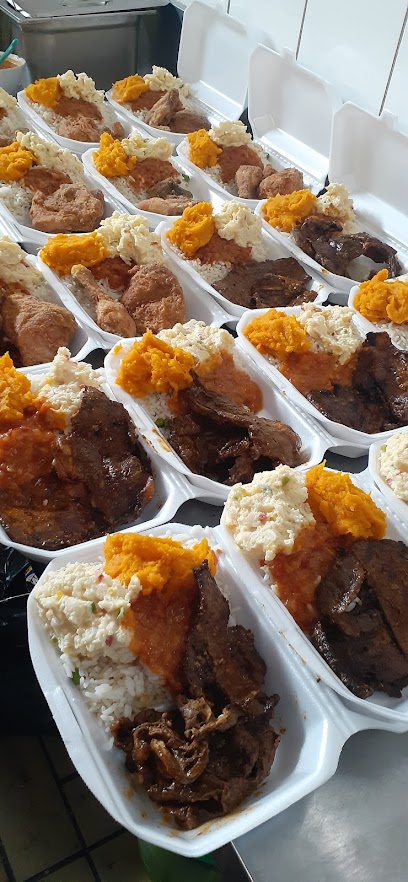
Makhubu Club
Discover Makhubu Club: A vibrant nightlife hub in Selebi Phikwe offering electrifying music and an unforgettable party atmosphere.
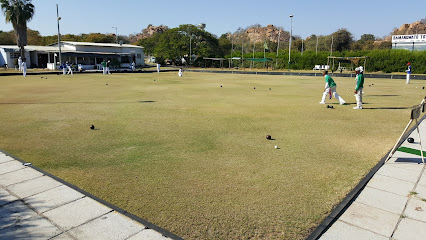
Markets, malls and hidden boutiques
The Mall
Discover a shopping haven at The Mall in Selebi Phikwe, where diverse stores and dining options await in a vibrant atmosphere.
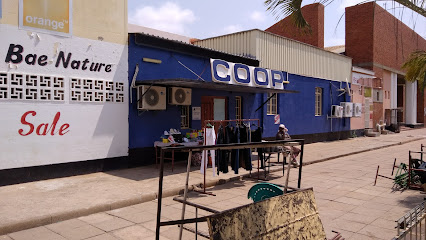
Pick n Pay Supermarket
Discover the best of local and international products at the Pick n Pay Supermarket in Selebi Phikwe, Botswana.
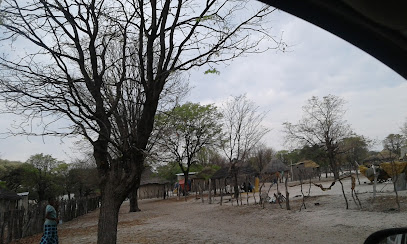
Choppies
Discover local and international flavors at Choppies, the go-to supermarket in Selebi Phikwe for all your shopping needs.
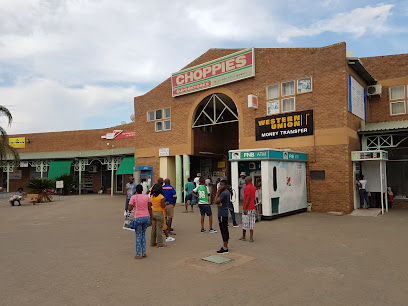
Daily Needs Hypermarket
Discover the vibrant flavors of Botswana at Daily Needs Hypermarket in Selebi Phikwe, your go-to grocery store for all essentials.
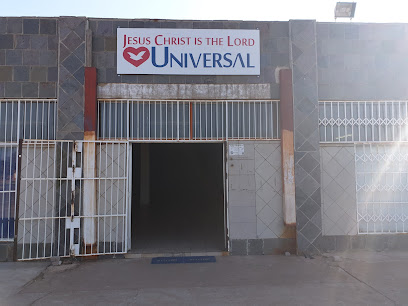
Fours Cash and carry Selebi Phikwe
Explore a vast selection of local and international goods at Fours Cash and Carry in Selebi Phikwe, Botswana's ultimate shopping destination.
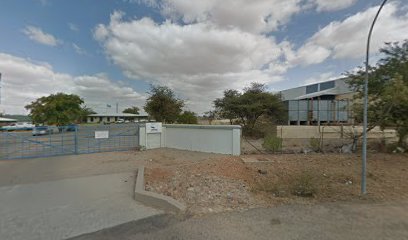
Selebi Phikwe
Discover the charm of Selebi Phikwe, where rich mining history meets vibrant local culture in the heart of Botswana.
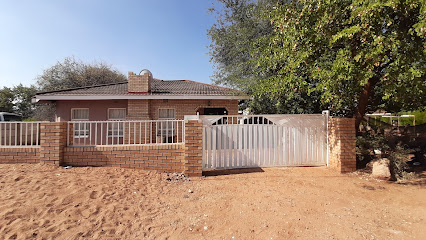
Makhubu Poolside
Discover the serene charm of Makhubu Poolside in Selebi Phikwe, where relaxation meets vibrant beach entertainment in a picturesque setting.

Pick n Pay Family Phikwe Mall
Explore the heart of Selebi Phikwe at Pick n Pay Family Mall, your one-stop supermarket for fresh produce, local delicacies, and everyday essentials.

Hypermarket
Discover the heart of Selebi Phikwe at the Hypermarket—where shopping meets culture in a vibrant community atmosphere.
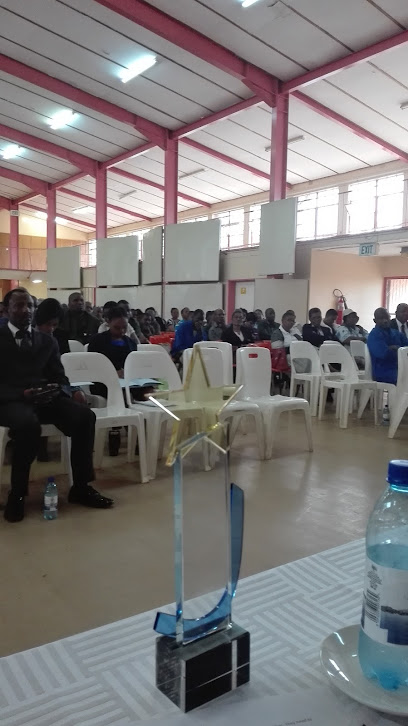
Lesedi Shopping Mall
Explore Lesedi Shopping Mall: A vibrant shopping and dining destination in Selebi Phikwe, showcasing local culture and modern conveniences.

Builders World
Explore Builders World in Selebi Phikwe for the best selection of home improvement essentials and unique decor items to elevate your living space.

Phikwe Square
Experience the vibrant shopping and cultural heart of Selebi Phikwe at Phikwe Square, where local craftsmanship meets modern retail.

Shoppers
Discover the vibrant local culture at Shoppers in Selebi Phikwe, where quality goods and friendly service await every tourist.

Woolworths Selebi Phikwe
Explore the vibrant shopping experience at Woolworths Selebi Phikwe, where quality meets variety in a modern department store.

Eureka Wholesalers Selebi Phikwe
Discover a unique shopping experience at Eureka Wholesalers in Selebi Phikwe, where convenience meets variety in a vibrant atmosphere.

Essential bars & hidden hideouts
Chicken Licken
Experience the vibrant local flavors at Chicken Licken in Selebi Phikwe, Botswana, where delicious fried chicken awaits every visitor.
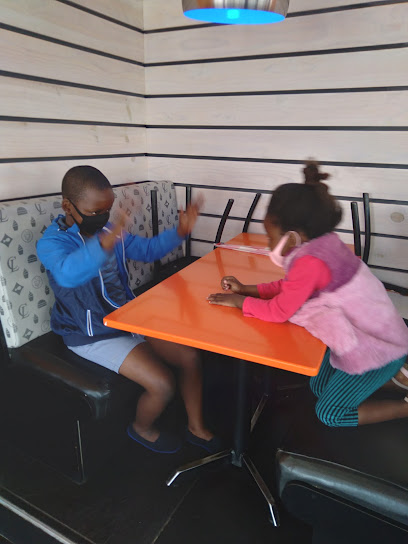
Bull and Bush Express
Discover the flavors of Botswana at Bull and Bush Express, a cozy restaurant offering a range of local and international dishes in Selebi Phikwe.
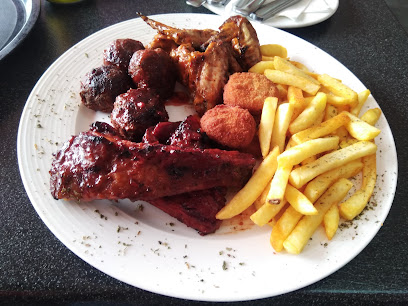
BROWNS EXEC PUB
Discover the lively charm of Browns Exec Pub in Selebi Phikwe, a perfect blend of local culture, delicious drinks, and vibrant nightlife.
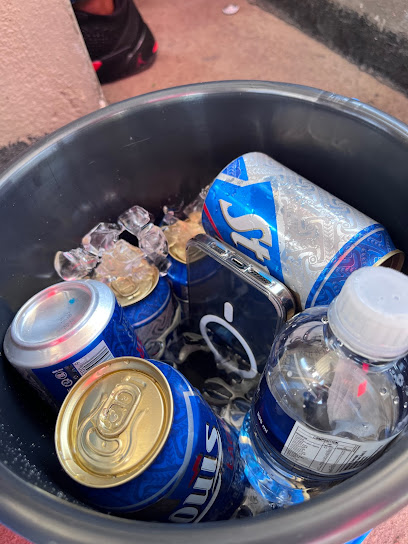
Syringa Spur
Discover a family-friendly dining experience at Syringa Spur, where delicious steaks and vibrant flavors meet in Selebi Phikwe.

Silva Peak Bar
Discover the lively nightlife at Silva Peak Bar in Selebi Phikwe, where great drinks and vibrant atmosphere come together for an unforgettable experience.
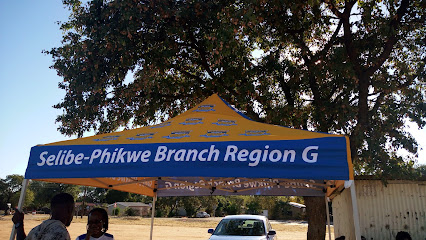
Honeymoon Bar
Discover the charm of Honeymoon Bar in Selebi Phikwe, Botswana, your go-to spot for relaxation, local drinks, and friendly vibes.

The Braai Smoke
Explore authentic Botswana cuisine at The Braai Smoke, a local favorite in Selebi Phikwe offering delicious grilled dishes and a warm atmosphere.
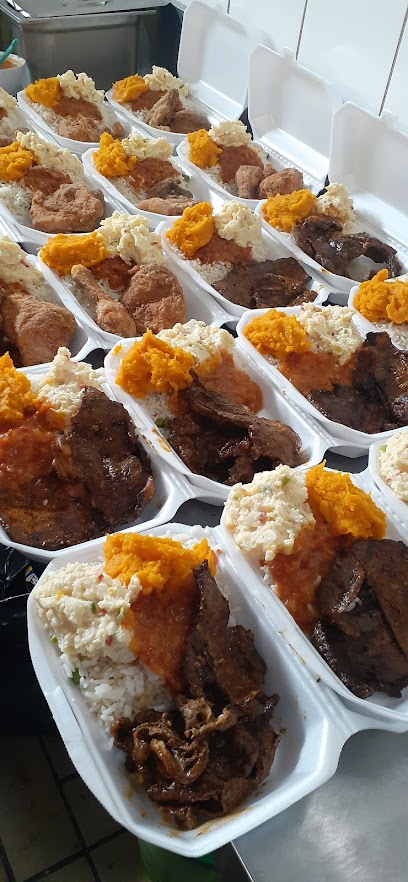
Makhubu Club
Discover the pulsating nightlife of Selebi Phikwe at Makhubu Club, a vibrant night club perfect for dancing and socializing.
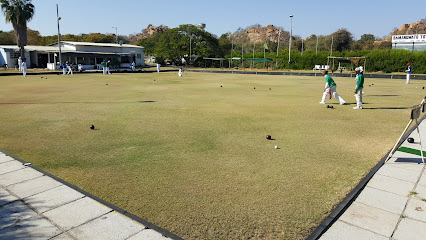
Motlapiso Caboose
Discover the vibrant fast food experience at Motlapiso Caboose in Selebi Phikwe, where local flavors meet quick service and a lively atmosphere.
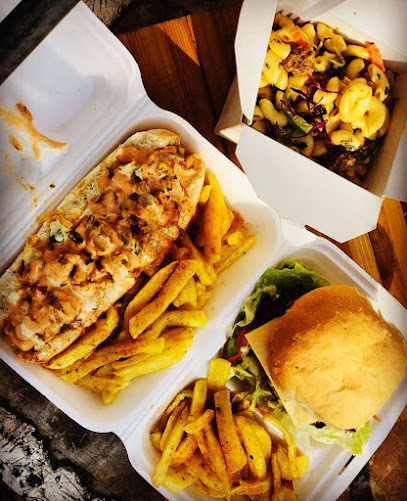
Sefophe
Experience the rich culinary heritage of Botswana at Sefophe, an inviting restaurant in Selebi Phikwe, where every dish tells a story.
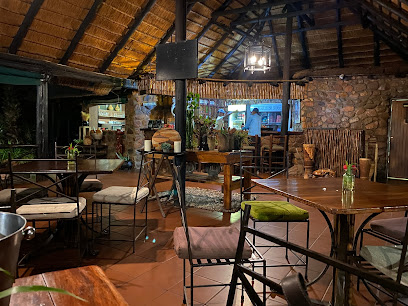
Giavannos
Experience the flavors of Botswana at Giavannos, Selebi Phikwe's premier restaurant offering a delightful blend of local cuisine and international dishes.

Craze phill liqour retaurant
Experience the vibrant flavors of Botswana at Craze Phill Liquor Restaurant in Selebi Phikwe's lively Lesedi Mall.

Continental Bar
Experience the lively atmosphere and diverse drink selection at Continental Bar in Selebi Phikwe, a perfect spot for nightlife and socializing.
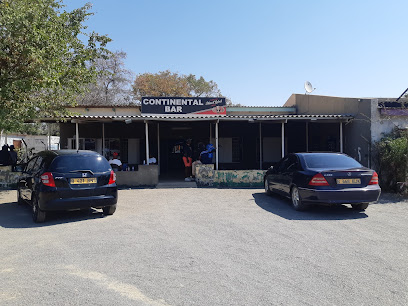
Kwadia Game Lodge and Resort
Experience the beauty of Botswana at Kwadia Game Lodge and Resort, where exceptional dining meets breathtaking nature.

Local Phrases
-
- HelloDumela
[doo-MEH-lah] - GoodbyeTsamaya sentle
[tsah-MAH-yah sehn-tleh] - YesEe
[ee] - NoNnyaa
[nn-yah] - Please/You're welcomeTsamaya sentle
[tsah-MAH-yah sehn-tleh] - Thank youKe a leboga
[keh ah leh-BOH-gah] - Excuse me/SorryNke a leboga
[nn-keh ah leh-BOH-gah] - How are you?O kae?
[oh kah-eh] - Fine. And you?Ke gona. Le wena?
[keh goh-nah. leh weh-nah] - Do you speak English?O bua seTswana?
[oh boo-ah seh-TSWAH-nah] - I don't understandGa ke itse
[gah keh eet-seh]
- HelloDumela
-
- I'd like to see the menu, pleaseKe kopa go bona menu, le kamoso
[keh koh-pah goh boh-nah meh-noo, leh kah-moh-soh] - I don't eat meatGa ke itse nyama
[gah keh eet-seh nyah-mah] - Cheers!Phila
[pee-lah] - I would like to pay, pleaseKe kopa go dira dipalo, le kamoso
[keh koh-pah goh dee-rah dee-pah-loh, leh kah-moh-soh]
- I'd like to see the menu, pleaseKe kopa go bona menu, le kamoso
-
- Help!Boitumelo!
[boy-too-MEH-loh] - Go away!Tlatsa!
[tlah-tsah] - Call the Police!Bula maburu!
[boo-lah mah-boo-roo] - Call a doctor!Bula morago!
[boo-lah moh-rah-goh] - I'm lostKe a tlhoka
[keh ah tlhoh-kah] - I'm illKe itse
[keh eet-seh]
- Help!Boitumelo!
-
- I'd like to buy...Ke kopa go rekela...
[keh koh-pah goh reh-keh-lah] - I'm just lookingKe rata go bona fela
[keh rah-tah goh boh-nah feh-lah] - How much is it?E e leng?
[eh eh leh-ng] - That's too expensiveEna e dira nngwe
[eh-nah eh dee-rah nng-weh] - Can you lower the price?O ka nnaletsa pampiri?
[oh kah nnah-leh-tsah pahm-pee-ree]
- I'd like to buy...Ke kopa go rekela...
-
- What time is it?Ke nako mang?
[keh nah-koh mah-ng] - It's one o'clockKe nako ya boraro
[keh nah-koh yah boh-rah-roh] - Half past (10)Nako e kete (le letsatsi la mararo)
[nah-koh eh keh-teh (leh leh-tsaht-see lah mah-rah-roh)] - MorningNako ya bomme
[nah-koh yah boh-meh] - AfternoonNako ya borra
[nah-koh yah boh-rah] - EveningNako ya lefatshe
[nah-koh yah leh-faht-sheh] - YesterdayNako ya boraro
[nah-koh yah boh-rah-roh] - TodayNako yeo
[nah-koh yeh-oh] - TomorrowNako e kae
[nah-koh eh kah-eh] - 1Motho
[moh-thoh] - 2Bobedi
[boh-beh-dee] - 3Boraro
[boh-rah-roh] - 4Boraro le bobedi
[boh-rah-roh leh boh-beh-dee] - 5Boraro le boraro
[boh-rah-roh leh boh-rah-roh] - 6Boraro le boraro le motho
[boh-rah-roh leh boh-rah-roh leh moh-thoh] - 7Boraro le boraro le bobedi
[boh-rah-roh leh boh-rah-roh leh boh-beh-dee] - 8Boraro le boraro le boraro
[boh-rah-roh leh boh-rah-roh leh boh-rah-roh] - 9Boraro le boraro le boraro le motho
[boh-rah-roh leh boh-rah-roh leh boh-rah-roh leh moh-thoh] - 10Lesome
[leh-soh-me]
- What time is it?Ke nako mang?
-
- Where's a/the...?Kae...?
[kah-eh] - What's the address?E kae gole?
[eh kah-eh goh-leh] - Can you show me (on the map)?O ka lebisa ka mepa?
[oh kah leh-bee-sah kah meh-pah] - When's the next (bus)?Kae kae (bus) e tlaa?
[kah-eh kah-eh (bus) eh tlah] - A ticket (to ....)Sepotikete (go ....)
[seh-poh-tee-keh-teh goh]
- Where's a/the...?Kae...?
History of Selebi-Phikwe
-
Selebi-Phikwe, often referred to simply as Phikwe, was established in the early 1970s as a mining town. It was developed around the discovery of substantial copper and nickel deposits in the region. The town derives its name from two villages in the area: Selebi and Phikwe.
-
The 1970s and 1980s marked a period of rapid growth and development for Selebi-Phikwe, driven by the mining industry. The Bamangwato Concessions Limited (BCL) mine became the centerpiece of the town, attracting workers from all over Botswana and neighboring countries. This influx led to a burgeoning population and the establishment of infrastructure to support the mining operations.
-
The late 1990s and early 2000s brought economic challenges to Selebi-Phikwe as global commodity prices fluctuated. The town's heavy reliance on the mining sector made it particularly vulnerable to these changes, leading to economic instability and job losses. Efforts were made to diversify the local economy, though the mining sector remained dominant.
-
In 2016, the BCL mine was officially closed due to financial difficulties and declining global copper and nickel prices. This event had a profound impact on Selebi-Phikwe, leading to significant economic and social challenges for the town's residents. The closure marked the end of an era and prompted a renewed focus on economic diversification and revitalization efforts.
-
Selebi-Phikwe is home to a diverse community that reflects Botswana's rich cultural heritage. The town hosts various cultural festivals and events, showcasing traditional music, dance, and crafts. The presence of different ethnic groups has fostered a vibrant cultural scene that celebrates the unique traditions and customs of its residents.
-
In recent years, Selebi-Phikwe has been positioning itself as a gateway to some of Botswana's natural attractions. The nearby Tswapong Hills and the Thune Dam offer opportunities for hiking, bird watching, and water sports. These attractions, along with efforts to promote eco-tourism, are part of the town's strategy to diversify its economy and attract visitors.
Selebi-Phikwe Essentials
-
Selebi-Phikwe is located in the Central District of Botswana. The nearest international airport is Sir Seretse Khama International Airport in Gaborone, approximately 400 kilometers away. From Gaborone, you can take a domestic flight to Francistown, followed by a bus or taxi to Selebi-Phikwe. Alternatively, you can drive from Gaborone to Selebi-Phikwe, which typically takes around 5 to 6 hours by road.
-
Selebi-Phikwe has a range of transportation options. Local taxis are readily available and relatively inexpensive. There are also minibus taxis that operate within the town and connect to nearby villages. For those who prefer more flexibility, renting a car can be a convenient option for exploring the surrounding areas at your own pace.
-
The official currency in Botswana is the Botswana Pula (BWP). Credit cards are accepted in most hotels, restaurants, and shops, but it is advisable to carry cash for smaller establishments and rural areas. There are several ATMs available in Selebi-Phikwe where you can withdraw cash.
-
Selebi-Phikwe is generally a safe destination for tourists. However, it is advisable to take standard precautions. Avoid walking alone at night in unfamiliar areas and keep an eye on your belongings in crowded places. There are no specific high-crime areas targeting tourists, but it is always best to stay vigilant and aware of your surroundings.
-
In case of emergency, dial 999 for immediate assistance. The local police station and medical facilities are available in Selebi-Phikwe. It is recommended to have travel insurance that covers medical emergencies. For minor health issues, there are pharmacies in the town where you can purchase over-the-counter medications.
-
Fashion: Do dress modestly, especially in public places. Avoid wearing revealing clothing. Religion: Do respect local customs and traditions. Always cover your head when entering religious sites. Public Transport: Do be respectful and give up your seat to elderly passengers. Don’t eat or drink on public transport. Greetings: Do greet people with a handshake. A smile and a slight nod of the head are also appreciated. Eating & Drinking: Do try local delicacies and accept food offerings graciously. Don’t refuse hospitality, as it is considered impolite.
-
To experience Selebi-Phikwe like a local, visit the local markets where you can buy fresh produce and traditional Botswanan goods. Engage with locals, as they are often friendly and willing to share stories about the town's history and culture. Don’t miss visiting the Selebi-Phikwe Copper and Nickel Mine, which has played a significant role in the town's development. For a unique experience, take a walk around the Phikwe Dam, offering beautiful views and a peaceful atmosphere.
Trending Landmark in Selebi-Phikwe
Nearby Cities to Selebi-Phikwe
-
Things To Do in Francistown
-
Things To Do in Palapye
-
Things To Do in Serowe
-
Things To Do in Mahalapye
-
Things To Do in Polokwane
-
Things To Do in Gweru
-
Things To Do in Gaborone
-
Things To Do in Molepolole
-
Things To Do in Masvingo
-
Things To Do in Lobatse
-
Things To Do in Pretoria
-
Things To Do in Hwange
-
Things To Do in Johannesburg
-
Things To Do in Victoria Falls
-
Things To Do in Nelspruit




